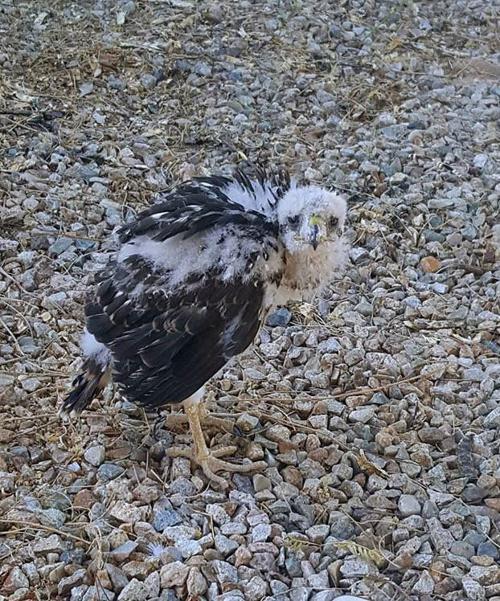With young Cooper’s hawks learning to fly, Arizona Game and Fish Department says the public should avoid most “rescue” efforts.
When Cooper’s hawks begin to approach the age of leaving the nest, they will jump to the ground and learn to fly from there.
This process, called fledging, results in local wildlife rehabbers receiving numerous calls from concerned individuals about the grounded young hawks.
“Being on the ground is a normal stage in the development of young Cooper’s hawks,” the agency said in a news release. “The parents will continue to feed them on the ground, and they will soon learn to fly.”
The hawks can use their talons to climb back up to their nests from branch-to-branch if they so choose.
A young Cooper’s hawk is feathered, but still could have some “fluffy white down sticking out between their feathers,” Game and Fish said. They’re able to run in a forward bent position, and will do so if approached.
However, if one of these young hawks is more down-than-feather, and is not trying to escape when being approached, it could have fallen out of the nest and is in fact not ready to be on the ground. In this instance, Game and Fish asks the public to place them in an “alternate nest.”
To do this correctly, attach a container that can be used as a nest to the tree where the real nest is located. It should be about shoulder height and include a soft towel at the bottom. If it’s not possible to attach the alternate nest to the same tree, it can go on a nearby tree that provides shade.
After the alternate nest is attached, place the young hawk inside, and its parents will feed it there.
Still, Game and Fish strongly urges people to allow these animals to be raised in their natural habitats, by their natural parents.
If any wildlife, including young Cooper’s hawks, are found unattended, it does not mean they are abandoned.
Reach Arizona Game and Fish Department at 623-236–7201.





